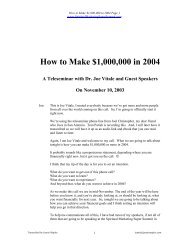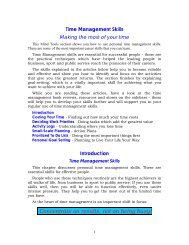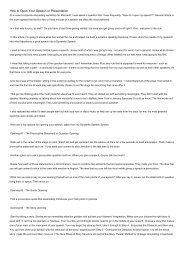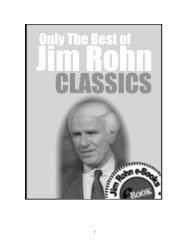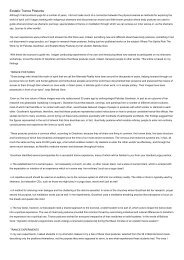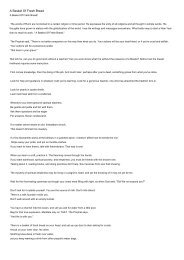Executive Coaching - A Guide For The HR Professional.pdf
Executive Coaching - A Guide For The HR Professional.pdf
Executive Coaching - A Guide For The HR Professional.pdf
Create successful ePaper yourself
Turn your PDF publications into a flip-book with our unique Google optimized e-Paper software.
94 EXECUTIVE COACHING<br />
............................<br />
potential and in the efficacy of the coaching process. If the boss isn’t<br />
a believer, it’ll be hard for him or her to communicate in positive<br />
tones. If the boss thinks of it as a long shot, something that should<br />
be kept secret, the organization will pick up negative signals. If the<br />
boss is optimistic and sees coaching as an investment, that will help<br />
the overall effort.<br />
Summary<br />
In this chapter, you have learned more about the boss’s role in<br />
the coaching process. This role may include identifying the need for<br />
coaching, initiating the coaching arrangement, providing information,<br />
offering feedback and rewarding progress, and providing the<br />
budget for the coach. You have gained an appreciation of the boss’s<br />
pivotal role in creating the case for change and defining the standards<br />
for good performance. You have seen that you have a role in<br />
encouraging the boss to take the time to define the strategic goals<br />
of the business unit, to offer observations and feedback, and to<br />
reward the client’s progress. Finally, you have seen the value in insuring<br />
that the boss’s observations of the client’s behavior changes are<br />
communicated to the coach and to the client.<br />
In the next chapter, you will gain a greater understanding of the<br />
activities that are the coach’s responsibility. This knowledge will<br />
position you as the liaison between the coach and the organization.






